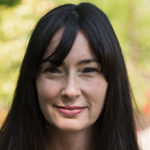 Robline Davey (Robbi) has recently completed a Master of Education at Thompson Rivers University (TRU) and beginning a doctoral program at SFU in Educational Technology in Fall 2020. Robbi’s research interests include exploring the way distance learning and the digital spaces can provide increased access to post-secondary education for Indigenous students. A media specialist in online education, she plans to integrate design thinking and her recent experience as an online student, to bring an interdisciplinary and holistic approach to her research. Other research interests include revitalizing traditional food and technology, as a way to bolster Indigenous health and well-being. Recently, Robbi worked on successful interdisciplinary community-driven CIHR and SSHRC grant applications. Robbi is the mother of a 9-year old boy and currently works in the Career and Experiential Learning Department as the Indigenous Experiential Learning Coordinator.
Robline Davey (Robbi) has recently completed a Master of Education at Thompson Rivers University (TRU) and beginning a doctoral program at SFU in Educational Technology in Fall 2020. Robbi’s research interests include exploring the way distance learning and the digital spaces can provide increased access to post-secondary education for Indigenous students. A media specialist in online education, she plans to integrate design thinking and her recent experience as an online student, to bring an interdisciplinary and holistic approach to her research. Other research interests include revitalizing traditional food and technology, as a way to bolster Indigenous health and well-being. Recently, Robbi worked on successful interdisciplinary community-driven CIHR and SSHRC grant applications. Robbi is the mother of a 9-year old boy and currently works in the Career and Experiential Learning Department as the Indigenous Experiential Learning Coordinator.
Dr. Rod McCormick
Dr. Rod McCormick (Kanienkehaka-Mohawk) is a Senior Professor and BC Government endowed Research Chair in Indigenous Health at Thompson Rivers University. Before moving back to his partner’s home community of T’Kemlups te Secwepemc, Rod was a psychologist and counselling psychology professor at the University of British Columbia for 18 years. …


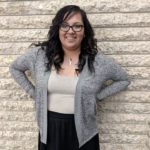 Tiffany Benn, Dakota Sioux from Birdtail Sioux Reserve, and mother of 4 awesome kids is a 3rd-year student in the U of Regina Social Work Program at our Saskatoon Campus, and alumni of the University of Saskatchewan Bachelor of Sociology Program (BA 2019). Tiffany first joined the Indigenous Student Achievement Pathways (ISAP) community as a student in the Star Blanket first-year Learning Community and has stayed connected working as an ISAP peer mentor since 2017. Tiffany is looking forward to another year mentoring with the program in 2020-21.
Tiffany Benn, Dakota Sioux from Birdtail Sioux Reserve, and mother of 4 awesome kids is a 3rd-year student in the U of Regina Social Work Program at our Saskatoon Campus, and alumni of the University of Saskatchewan Bachelor of Sociology Program (BA 2019). Tiffany first joined the Indigenous Student Achievement Pathways (ISAP) community as a student in the Star Blanket first-year Learning Community and has stayed connected working as an ISAP peer mentor since 2017. Tiffany is looking forward to another year mentoring with the program in 2020-21.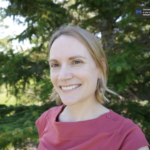 Sandy Bonny, a non-Indigenous member of Saskatoon’s Treaty 6 community, and mother of one awesome kid has an interdisciplinary background in the Earth sciences (PhD. 2007) and literary arts. Sandy has worked with the USASK College of Arts & Science ISAP program since 2012 in various roles as an instructor, curriculum and program developer, and currently as ISAP team lead.
Sandy Bonny, a non-Indigenous member of Saskatoon’s Treaty 6 community, and mother of one awesome kid has an interdisciplinary background in the Earth sciences (PhD. 2007) and literary arts. Sandy has worked with the USASK College of Arts & Science ISAP program since 2012 in various roles as an instructor, curriculum and program developer, and currently as ISAP team lead.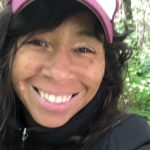 Victoria Bomberry
Victoria Bomberry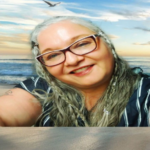 Christine Smillie-Adjarkwa (Naawe Giizhigoo Kwe)
Christine Smillie-Adjarkwa (Naawe Giizhigoo Kwe)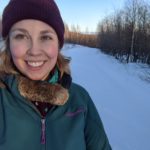 Emily Beacock
Emily Beacock